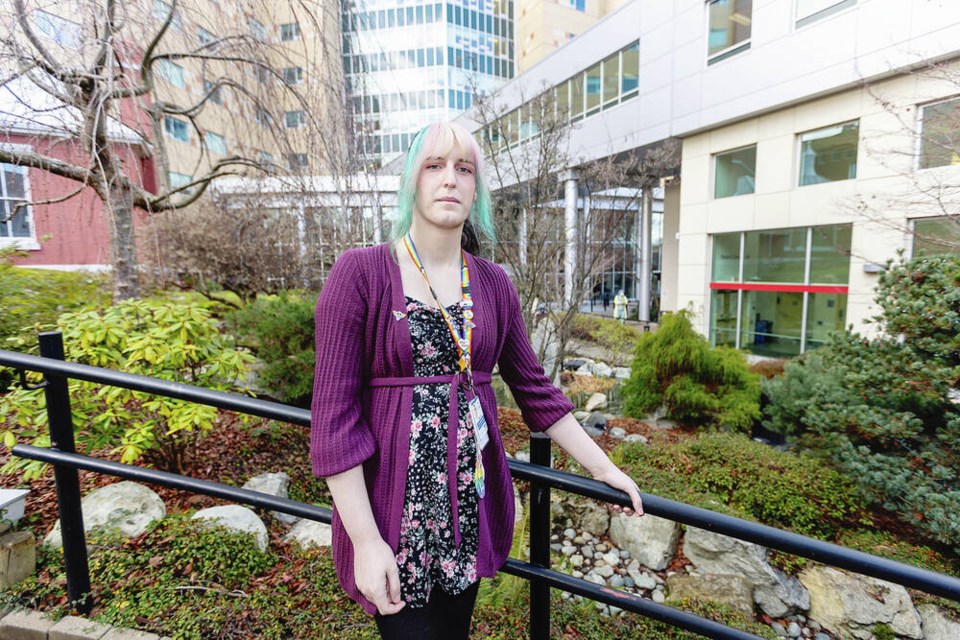Registered nurse Emily Wyatt is the face of a new pilot program at Royal Jubilee Hospital to help people who identify as lesbian, gay, bisexual, transgender and queer feel welcome in the acute-care health setting.
The nurse liaison position was created to address barriers for LGBTQ+ people in accessing health care and to improve their experience while in hospital, Island Health said in announcing the pilot project on Wednesday.
Wyatt, 31, a registered nurse working in the emergency department at Royal Jubilee, said in an interview she advocated for the creation of the position within Island Health and started in December.
It’s the first position of its kind in B.C., according to the health authority.
“It was the right place, the right idea, at the right time,” said Wyatt, who is expected to facilitate staff education and invite discussion and assess programs for Island Health to ensure they align with recommendations from as well as the World Professional Association for Transgender Health.
Trans Care BC, part of the provincial health services authority sets direction for trans health services across B.C.
Wyatt said there are online learning modules to train staff and she teaches an optional course, but it’s not as effective as being on site and collaborating with clinicians and patients.
Wyatt said as a nurse, she’s seen people in the LGBTQ+ community who don’t feel safe in health-care settings, so they put off their care until they are so sick that by the time she sees them in the ER, they “are needing to be resuscitated.”
Wyatt compares her role to the health authority’s Indigenous nurse liaison, who can help staff and patients “in the moment” as a visible member of the LGBTQ+ community.
She recalls being critically ill in hospital in Montreal, alone and away from her robust support network, calling it a “terrifying situation to not have anybody there from my community to advocate for me even as a nurse when staff weren’t listening to me or weren’t hearing the experience I was having.”
“I think having someone like myself in this role would have really improved that experience significantly for me and made me feel safer and less anxious,” said Wyatt.
Wyatt’s responsibilities include liaising with care-team members and providing emotional support, health-care advocacy, harm reduction and education.
She will also connect gender diverse and trans patients with community and social resources, and can help co-ordinate care through at-home support systems.
Wyatt said she will aim to work closely with care-team members to make sure patients feel safe, understood and supported.
She said care teams and other liaison nurses can call her or refer patients to her, or patients can fill out through Island Health to request her presence to help them navigate the system.
“One day I would love to see seven-day-a-week coverage for this role — I think it’s necessary,” said Wyatt.
Wyatt advised LGBTQ+ community members who are wary of the health-care system to bring an advocate with them or, if they’re at Royal Jubilee, they can seek her out.
In Island Health, there are a few surgeons who typically work out of Royal Jubilee Hospital, Saanich Peninsula Hospital and up Island who perform gender-affirming surgery — there is no designated hospital for such surgeries on the Island.
The project at Royal Jubilee will be reviewed in six months — it is also part of a research project through the University of Victoria — and additional locations may be added in future.
>>> To comment on this article, write a letter to the editor: [email protected]



